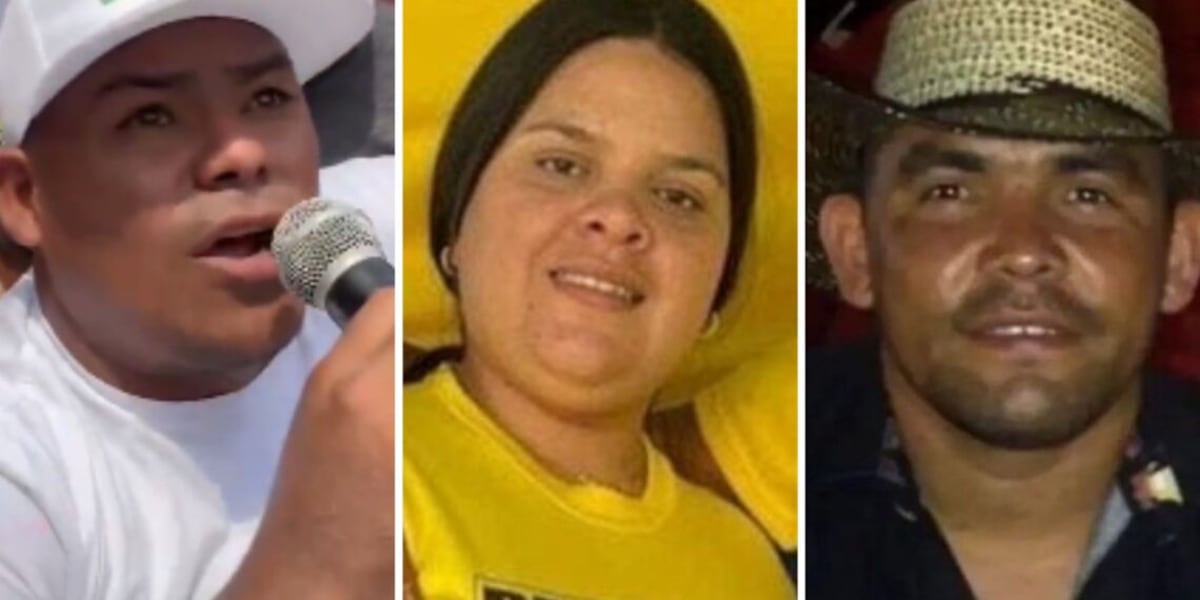The calm that followed the addition of support for Edmundo González Urrutia as the opposition candidate and third option after the disqualification of María Corina Machado elected in primaries has been short-lived. With the challenge of registration resolved, at least for now, the persecution of the leader who concentrates the greatest popular support has not ceased. During the weekend, there were new arrests of her entourage, this time of followers who approached her in towns on the western plains of the country such as Turén and Ospino, in the state of Portuguesa. Between Saturday and Sunday, Primero Justicia and Vente Venezuela militants, Ámbar Márquez and Víctor Castillo, members of the unitary campaign command in the Santa Rosalía municipality, and Oscar Castañeda, a supporter of the opposition, were taken from their homes by officials of Government intelligence. With them, there are now more than twenty people imprisoned and wanted by the police in Machado’s circle, six of them remain refugees in the Argentine Embassy in Caracas.
The persecuted went viral when Machado gave the microphone to Oscar Castañeda in a meeting with his followers in the center of the country. “I am one of the Venezuelans who came with his defeated family from Colombia,” said the man and asked to give confidence to the politician who cannot compete in the presidential elections on July 28. “I ask you to raise your hand for all those who fell at the border and suffered ridicule for being in another country,” Castañeda said.
The low profile of the detainees, paradoxically, has raised alarm bells. This Monday marks 40 days since the arrest of Henry Alviárez and Dignora Hernández, two of the leaders of Machado’s party and his main collaborators. Machado has denounced that since then they have been held incommunicado and without access to private defense, a pattern that violates human rights that has become increasingly frequent. But the repression of Chavismo is reaching almost anyone who expresses themselves publicly, as is the case of Castañeda. The international community, especially countries like the United States, are closely following the process in Venezuela, which is expected to lead to moderately competitive elections, despite the fact that several commitments of the Barbados agreement have been violated. “We condemn the arrests of more campaign staff from Venezuelan democratic opposition parties over the weekend. These arrests are contrary to an inclusive electoral process. We call for the immediate release of all political prisoners,” said the Undersecretary of State for the Western Hemisphere, Brian Nichols, on his social networks. The Democratic Unitary Platform (PUD) accused the Maduro regime of continuing with its “intimidating crusade” and demanded the immediate freedom of the three detained activists.
Over the weekend, González Urrutia had an interview on open television on a private channel, something that had not happened with opponents for several years. One of the agreements signed between the Government and the opposition last October was to allow balanced access for candidates to public and private media; the first totally aligned with Chavista propaganda and the second censored and with less and less influence and reach. On the ground, where Machado is campaigning to encourage voting and to do so for the diplomat who in some way is representing her, the repressive wave continues.
The Center for Defenders and Justice presented its report for the first quarter of 2024 in which they recorded 418 attacks on human rights defenders and warned of “the deepening of the closure of civic and democratic space in the pre-electoral context.” 85% higher than the same period in 2023, according to this count. Added to the record are the threats of the law against fascism promoted by the National Assembly allied with Maduro, which NGOs warn will be an instrument to restrict freedom of expression.
**Major conspiracy**
Prosecutor Tarek William Saab has pointed out new people involved in the PDVSA Cripto plot, whose head is supposedly the former Minister of Petroleum and man close to Nicolás Maduro, Tareck El Aissami, arrested a few weeks ago. The Public Ministry assures that the leaders Carlos Vecchio and the former political prisoner Leopoldo López, both from Voluntad Popular and in exile for several years; Julio Borges, head of Primero Justicia and also outside Venezuela, and Carlos Ocariz, who is in the country and has joined Machado’s campaign, are part of the conspiratorial plot that defrauded the state oil company that supposedly had the intention of provoking the fall of the Government.
According to Saab, they acted in complicity with the detained businessman Samark López, accused of being El Aissami’s front man, and the former United States representative for Venezuela, James Story. The prosecutor assured that he has more than 40 hours between the old files of the Chavista Government and the senior leaders of the opposition. The Chavista purge that began more than a year ago has left more than 70 people detained. Three of them have died in state custody without further explanation from the authorities.
Leopoldo López responded through X: @TarekWiliamCan, you more than anyone know that you have also had conversations to explore Maduro’s departure. There are many who have done it and do it within the dictatorship. So don’t act crazy, raising a new pot against me. They have you recorded too. Everything falls under its own weight”.
For his part, Ocariz, who last week received a 15-year disqualification from the Comptroller’s Office, acknowledged having had conversations in 2020 with the financial operator of El Aissami, today in prison. He assures that opposition leaders were seeking to create lines of communication to produce agreements for the entry of humanitarian aid into the country when the covid pandemic began. At that time, Donald Trump had already imposed oil sanctions against Venezuela, El Aissami had been appointed Minister of Petroleum and Samark López acted as his right-hand man, explains the leader of Primero Justicia pointed out by the prosecutor.
Follow all the information from El PAÍS América on Facebook and X or in our weekly newsletter.
